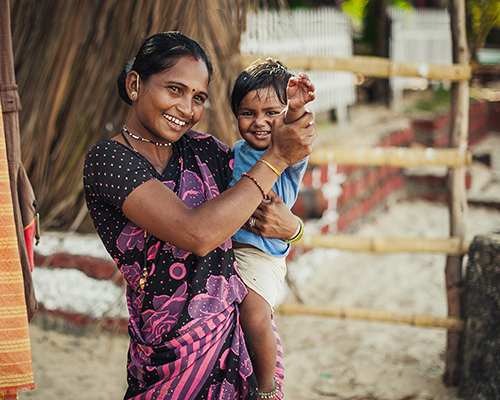Studying the impact of COVID- 19 pandemic on Medical Healthcare Workers (MHWs) in Mumbai, India.
Medical Health Workers (MHWs) have been at the frontline of COVID response efforts. Along with doctors and nurses, frontline workers, paramedics, and other allied workers have also been actively contributing towards patient identification, managing quarantine facilities, providing medicines, and continuing routine care and treatment services.
In Mumbai, the population has expanded rapidly over the past decade. Still, the health infrastructure needs to catch up. Given the severity of challenges faced by the medical community, the proposed study aimed to assess the pandemic’s impact on the overall well-being of MHWs in the selected sites.
The research questions for the study were as follows:
- What is the impact of COVID-19 on the physiological, psychological, social, and economic well-being of MHWs? And what is the prevalence of burnout, stigma, discrimination, and maltreatment by patients’ relatives experienced by MHWs?
- What mitigation measures have GoI and the private sector (NGOs / CSR) taken at individual and facility levels?
- What lessons were learned to mitigate the impact of COVID-19 on MHWs?
Sambodhi conducted a mixed-methods, cross-sectional study in line with these objectives. The study had two components – a preliminary study and a secondary study.
The preliminary study used qualitative methods to assess COVID-19’s impact on MHWs by documenting their experiences and perspectives. The secondary study utilized publicly available data, literature, and government documents to understand the impact of COVID-19 and response efforts led by GoI, NGOs, and private organizations. The study findings were synthesized to distill learnings for guiding response efforts and recommending insights for future preparedness.
The primary study collected data from doctors, nurses, and support staff from primary to tertiary government and private facilities in Mumbai. We interviewed healthcare providers (doctors and nurses) delivering direct care and treatment for patients with COVID-19 (in public and private facilities) and the allied technical, administrative, and support staff. Information was gathered on their experiences, routine work changes, challenges, and the support and training they received during the process.
In total, we interviewed 91 MHWs–58 MHWs from public facilities and 33 MHWs from Private facilities. Additionally, Service Delivery and Readiness Assessment (SARA) was made by visiting some of these centers. An assessment checklist assessed and evaluated the system’s service delivery and readiness.
The secondary study helped us understand the relevance, effectiveness, and efficiency of the efforts made and the resilience and adaptation of the health system and services.
A secondary data review and analysis comprised of:
- a rapid scoping review, meant to examine scientific literature, review policy documents, health reforms, legislation, bills, amendment, and the contribution of private players, CSR, NGOs, etc. in examining the evidence around the impact of COVID-19 on MHWs, and
- quantitative analysis of secondary data, which was publicly available such as Mumbai’s Health Management Information Systems (HMIS), was identified and used to track important indicators concerning the disruption of health outcomes, service delivery, health systems infrastructure, and human resource, etc.

